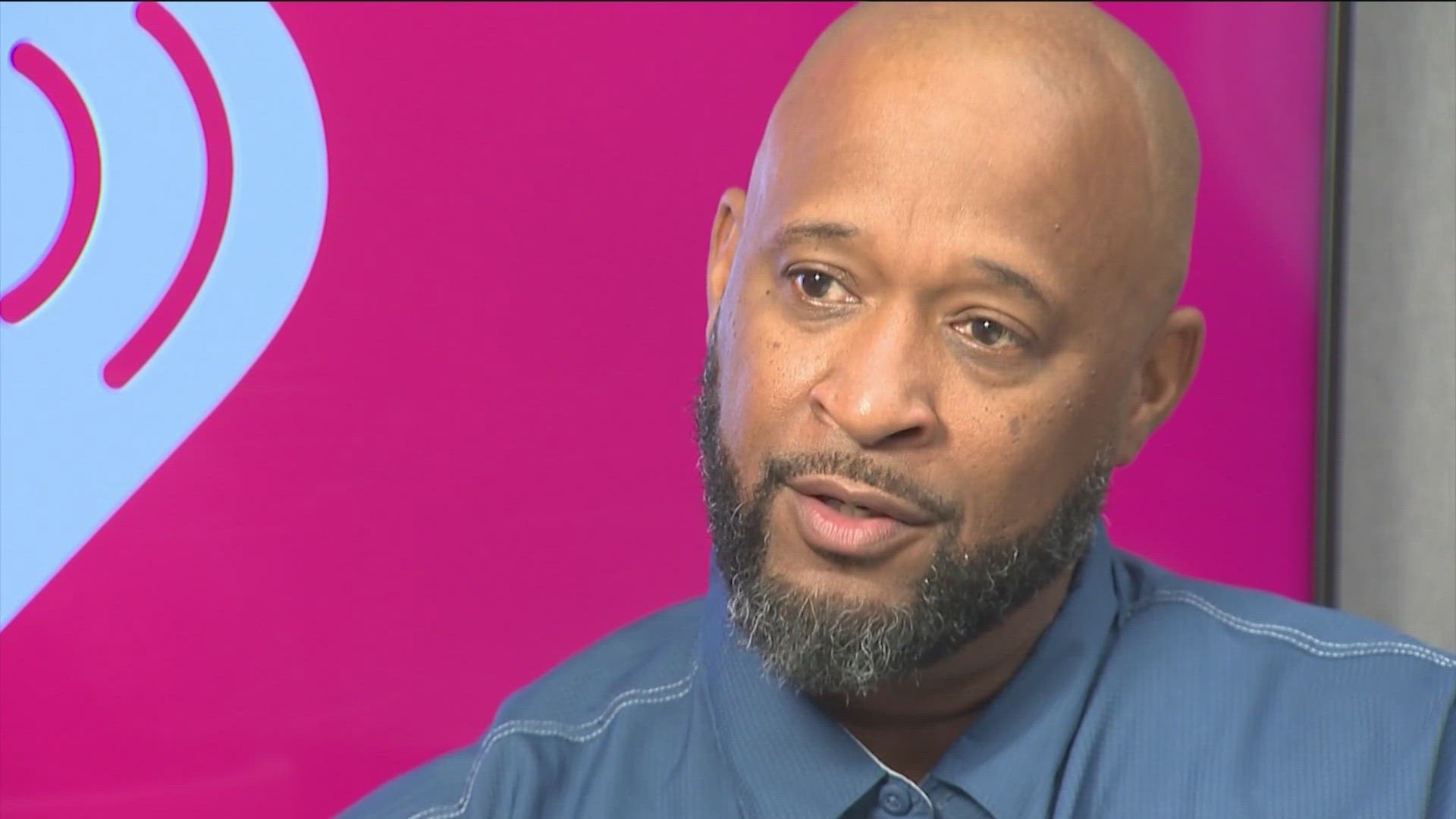AUSTIN, Texas — An Austin sports radio host is sharing his story as a prostate cancer survivor with the hope of inspiring others to get tested.
It's something he said is important year-round.
"I get to come in here every single day and spread the word about prostate cancer awareness, and it doesn't only have to be for the month of September. It can be every single day," Mike "Hardball" Hardge said.
Hardge was diagnosed with prostate cancer five years ago. Now on the other side of his journey, he wants to be an example for men dealing with the same deadly disease.
As a sports radio talk show host, Hardge has a large platform that reaches a lot of men who he says need to pay attention to their health.
He's also is a former Major League Baseball player, but it's what happened off the field that changed his life.
"Well, when you hear the 'big C,' everybody kind of gets a little bit nervous," Hardge said.
He was diagnosed with prostate cancer in 2019.
"You hear the word, and your first fear is recognized," Hardge said. "Cancer is something. It's an ugly word."
He received surgery and treatment from the St. David's Surgical Hospital and said his family kept him going, cheering him on from the sidelines.
"As this was happening real time, I kept looking at my kids and my kids were the true inspiration behind it all. For me to say, 'Let's go ahead and do it,'" he said.
A simple blood test kicked off Hardge's journey. A check of his prostate-specific antigen (PSA) levels showed something was wrong.
"Whenever you're going in and you get your PSA levels checked from the blood test, it can tell you a lot," Hardge said.
"I think a lot of people think about a prostate screening as that rectal exam that people make jokes about. But now, it's an easy blood draw. So with your normal blood tests every year, they can check your PSA," said Dr. Mike Herman, a radiation oncologist with Texas Oncology.
Herman also said there have been many recent advancements in treatments.
"I think that people don't realize that sometimes, the treatments for prostate cancer can be very easy, where you can continue to work at your normal day to day life. You can come in for a 10-minute treatment and walk out the exact same person," he said.
As a survivor, Hardge wants to share his playbook with others and encourage them to get tested sooner rather than later.
"Here on the air, I tell men every single month, 'Go get checked.' Because the only way you're going to know is going to your doctor," Hardge said.
Intercepting the disease early can put more time on the clock to spend with family, loved ones and other personal cheerleaders.
Doctors recommend getting your PSA level checked yearly after you turn 50 or starting at 45 years old if you have a family history of prostate cancer.

